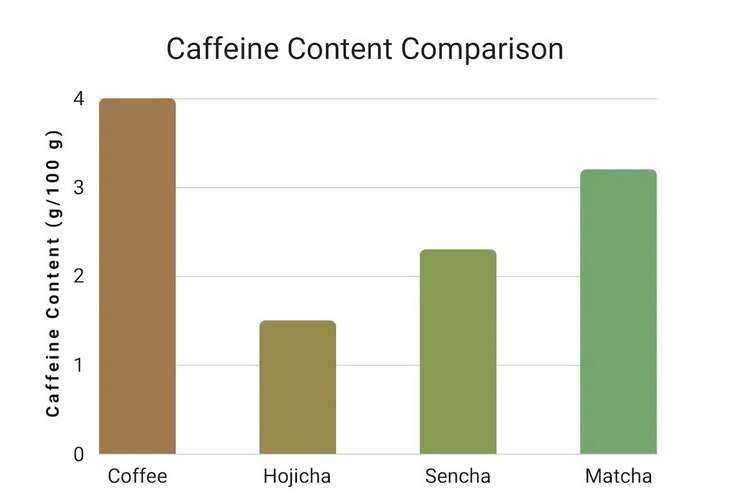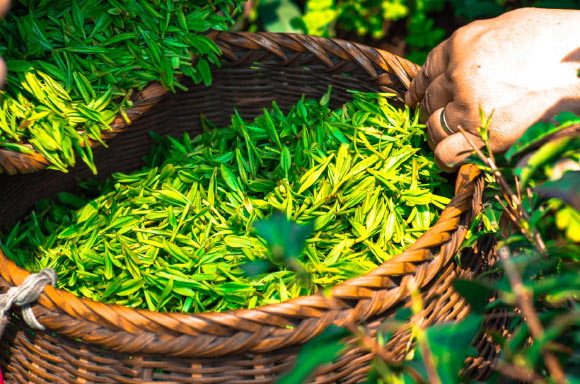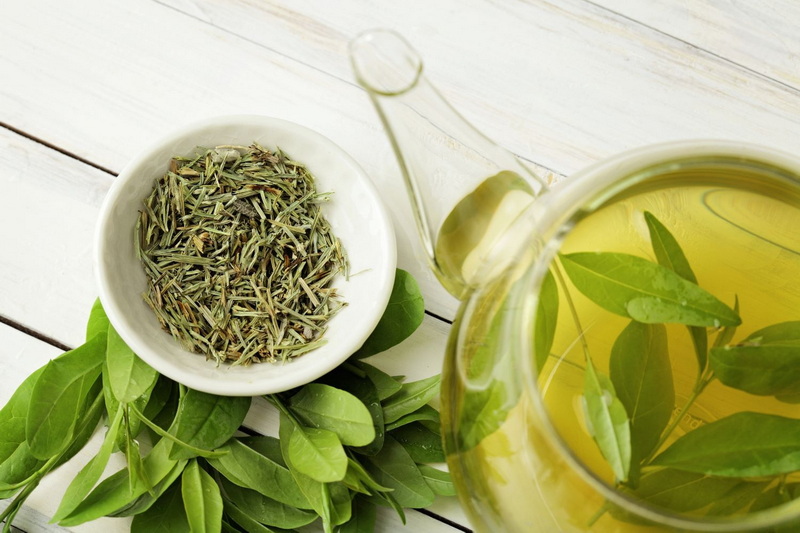Content Menu
● Understanding Green Tea Extract
● Health Benefits of Green Tea Extract
● Caffeine: The Stimulant
● Caffeine Content in Green Tea Extract
● Comparing Green Tea Extract and Caffeine
● Additional Considerations
● The Role of L-Theanine
● Benefits of L-Theanine
● How L-Theanine Works
● Potential Side Effects and Precautions
● Common Side Effects
● Precautions
● How to Use Green Tea Extract
● Tips for Incorporating Green Tea Extract into Your Routine
● Synergistic Effects with Other Supplements
● Conclusion
● FAQ
>> 1. What is the main difference between green tea extract and regular green tea?
>> 2. Can I take green tea extract for weight loss?
>> 3. Is the caffeine in green tea extract stronger than that in coffee?
>> 4. Are there any side effects associated with green tea extract?
>> 5. How much L-theanine is found in green tea?
● Citations:
Green tea extract and caffeine are frequently discussed together in health and wellness conversations. While both are associated with energy and alertness, they have different roles and unique properties. This article explores the relationship between green tea extract and caffeine, examining their differences, benefits, and how they interact within the body, providing an in-depth look into their individual characteristics and synergistic effects.

Understanding Green Tea Extract
What is Green Tea Extract?
Green tea extract is derived from the leaves of the Camellia sinensis plant. It's a concentrated form, offering a higher dose of beneficial compounds compared to brewed green tea. This extract is rich in antioxidants, especially catechins, which are believed to provide various health benefits. The process involves drying the leaves and then extracting the beneficial components, resulting in a potent supplement often used for its health-promoting properties.
Health Benefits of Green Tea Extract
1. Antioxidant Properties: Green tea extract is high in polyphenols, which help combat oxidative stress in the body. Oxidative stress occurs when there is an imbalance between free radicals and antioxidants, leading to cellular damage. By neutralizing free radicals, green tea extract helps protect the body against chronic diseases and aging.
2. Weight Management: Some studies suggest that green tea extract can aid in weight loss by boosting metabolism and fat oxidation. The catechins, particularly epigallocatechin gallate (EGCG), are thought to play a key role in this process by increasing energy expenditure and promoting the breakdown of fats.
3. Heart Health: Regular consumption has been linked to improved heart health, potentially lowering cholesterol levels and blood pressure. The antioxidants in green tea extract help prevent the oxidation of LDL cholesterol, reducing the risk of plaque formation in arteries.
4. Brain Function: The combination of caffeine and L-theanine in green tea may enhance cognitive function and alertness. This synergistic effect provides a sustained energy boost without the jitters often associated with caffeine alone.
5. Anti-Inflammatory Effects: Green tea extract has anti-inflammatory properties, which can help reduce inflammation throughout the body. Chronic inflammation is linked to various health problems, including arthritis, heart disease, and certain cancers.
Caffeine: The Stimulant
What is Caffeine?
Caffeine is a natural stimulant found in various plants, including coffee beans, tea leaves, and cacao pods. It works by blocking adenosine receptors in the brain, leading to increased alertness and reduced perception of fatigue. Adenosine is a neurotransmitter that promotes relaxation and sleepiness, so by blocking its effects, caffeine helps keep you awake and focused.
Caffeine Content in Green Tea Extract
The caffeine content in green tea extract can vary significantly between brands and formulations. On average:
- A standard cup of brewed green tea contains about 30-50 mg of caffeine.
- Green tea extracts can contain anywhere from 20 mg to over 200 mg of caffeine per serving, depending on concentration and processing methods. It's essential to check the label of your green tea extract product to understand the caffeine content accurately.
Comparing Green Tea Extract and Caffeine
While green tea extract contains caffeine, it is not accurate to say that they are the same thing. Here are some key differences:
| Feature | Green Tea Extract | Caffeine |
| Source | Derived from Camellia sinensis leaves | Found in various plants (coffee, tea) |
| Primary Components | Antioxidants (catechins), caffeine | Caffeine only |
| Health Benefits | Antioxidant effects, weight loss | Increased alertness, reduced fatigue |
| Typical Caffeine Content | 20-200 mg per serving | Varies widely (80-200 mg per cup) |
Additional Considerations
- Absorption Rates: The absorption rate of caffeine from green tea extract may be slower compared to coffee, resulting in a more sustained and gentle energy lift.
- Synergistic Effects: The combination of caffeine and other compounds in green tea extract, such as catechins and L-theanine, can create a synergistic effect, enhancing the overall benefits.
The Role of L-Theanine
One of the unique aspects of green tea extract is its content of L-theanine, an amino acid that promotes relaxation without drowsiness. This compound can mitigate some of the jittery effects commonly associated with caffeine consumption alone. The combination of L-theanine and caffeine may enhance cognitive performance better than either compound alone.

Benefits of L-Theanine
1. Calming Effect: Helps reduce anxiety while maintaining alertness. L-theanine promotes the production of alpha brain waves, which are associated with a state of relaxed wakefulness.
2. Improved Focus: Enhances attention span during tasks requiring concentration. By modulating neurotransmitter activity, L-theanine helps improve focus and mental clarity.
3. Better Sleep Quality: May improve sleep quality when consumed regularly. L-theanine can help reduce stress and promote relaxation, making it easier to fall asleep and stay asleep.
How L-Theanine Works
L-Theanine primarily affects neurotransmitters in the brain, such as GABA, dopamine, and serotonin. By increasing levels of these neurotransmitters, L-theanine helps promote relaxation, improve mood, and reduce anxiety. It does not cause drowsiness but instead promotes a state of calm alertness, making it an ideal complement to caffeine.
Potential Side Effects and Precautions
While green tea extract is generally considered safe, it's important to be aware of potential side effects and take necessary precautions.
Common Side Effects
- Digestive Issues: Some individuals may experience stomach upset, nausea, or diarrhea, especially when taking high doses.
- Headaches: Due to the caffeine content, green tea extract can cause headaches in sensitive individuals.
- Insomnia: Consuming green tea extract close to bedtime may interfere with sleep.
- Liver Problems: In rare cases, high doses of green tea extract have been associated with liver damage.
Precautions
- Dosage: Follow recommended dosages and avoid taking excessive amounts.
- Interactions: Green tea extract can interact with certain medications, so it's important to consult with a healthcare professional before use.
- Pregnancy and Breastfeeding: Pregnant and breastfeeding women should exercise caution and consult with a healthcare provider before taking green tea extract.
How to Use Green Tea Extract
Green tea extract is available in various forms including capsules, powders, and liquid extracts. When choosing a product, consider the following:
- Concentration: Check the amount of catechins and caffeine per serving. Higher concentrations of catechins, especially EGCG, are generally more beneficial.
- Quality: Look for third-party testing to ensure purity. Third-party testing verifies that the product contains the ingredients listed on the label and is free from contaminants.
- Dosage: Follow recommended dosages based on your health goals. Start with a low dose and gradually increase as needed, while monitoring for any side effects.
Tips for Incorporating Green Tea Extract into Your Routine
1. Start Slowly: Begin with a low dose to assess your tolerance and avoid potential side effects.
2. Take with Food: Consuming green tea extract with food can help reduce the risk of digestive issues.
3. Avoid Late-Day Consumption: To prevent sleep disturbances, avoid taking green tea extract close to bedtime.
4. Stay Hydrated: Drink plenty of water throughout the day to support overall health and help prevent dehydration.
Synergistic Effects with Other Supplements
Green tea extract can be combined with other supplements to enhance its benefits. Here are some examples:
- Vitamin C: Enhances the antioxidant effects of green tea extract.
- Omega-3 Fatty Acids: Supports heart health and reduces inflammation.
- Probiotics: Promotes gut health and improves nutrient absorption.
Conclusion
In summary, while green tea extract contains caffeine, it also offers a host of additional benefits due to its high concentration of antioxidants and L-theanine. Understanding these differences can help consumers make informed choices about their health supplements. Green tea extract can be a valuable addition to a healthy lifestyle, providing a natural energy boost and numerous health benefits.

FAQ
1. What is the main difference between green tea extract and regular green tea?
Green tea extract is a concentrated form that provides higher levels of antioxidants and caffeine compared to brewed green tea, making it a more potent option for those seeking specific health benefits.
2. Can I take green tea extract for weight loss?
Yes, studies suggest that green tea extract may help boost metabolism and aid in weight management, but it should be combined with a balanced diet and regular exercise for optimal results.
3. Is the caffeine in green tea extract stronger than that in coffee?
Not necessarily; while some extracts can have high caffeine content, coffee generally has more caffeine per serving than green tea. The effects may also vary based on individual sensitivity and other factors.
4. Are there any side effects associated with green tea extract?
Some individuals may experience side effects such as headaches or digestive issues if taken in excessive amounts. It's important to follow recommended dosages and consult with a healthcare professional if you have any concerns.
5. How much L-theanine is found in green tea?
The amount of L-theanine varies but typically ranges from 6-12 mg per cup of brewed green tea. Green tea extract may provide a more concentrated dose of L-theanine, depending on the specific product.
Citations:
[1] https://www.livestrong.com/article/186702-how-much-caffeine-is-in-green-tea-extract/
[2] https://www.womenshealthmag.com/food/a19924479/coffee-vs-green-tea/
[3] https://www.sugimotousa.com/blog/green-tea-vs-coffee-everything-you-need-to-know
[4] https://pmc.ncbi.nlm.nih.gov/articles/PMC7912137/
[5] https://www.scielo.br/j/cta/a/8Y9c3pBkGThNcY4PvjbzDbM/?format=pdf&lang=en
[6] https://pmc.ncbi.nlm.nih.gov/articles/PMC6941079/
[7] https://www.researchgate.net/figure/Polyphenol-and-caffeine-content-of-the-green-tea-extracts-as-specified-by-the_tbl1_26891800
[8] https://www.healthline.com/nutrition/caffeine-in-green-tea






























